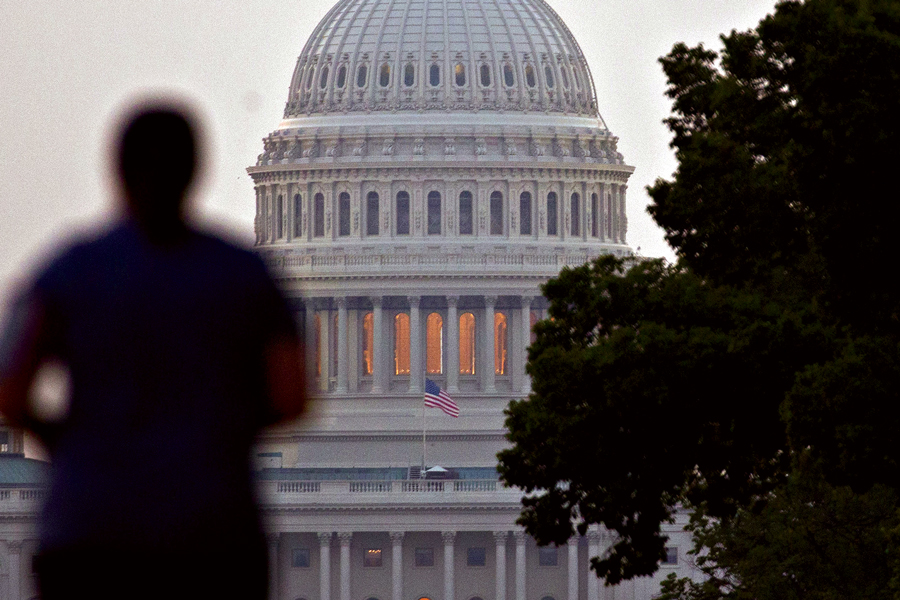

Several trade associations representing financial advisers are lagging behind the usual pace of their spending on congressional campaigns, but they say they will step up their political donations this year.
In 2019, the Financial Services Institute contributed $80,000 to lawmakers’ coffers, according to its Jan. 31 filing with the Federal Election Commission. That figure covers the first year of the two-year 2020 election cycle.
For the full two-year cycle in 2018, FSI made $198,500 in political contributions. In 2016, it made $331,000 in contributions, according to the Center for Responsive Politics.
The organization, which is made up of independent broker-dealers and financial advisers, said it has added a staff member who is working on its political action committee and has done other restructuring of the unit. Its campaign spending will soon increase.
“We have an aggressive plan to deploy our PAC resources this year,” David Bellaire, FSI executive vice president and general counsel, told reporters at the group’s OneVoice conference in San Diego last Tuesday.
FSI Chief Executive Dale Brown touted the fact that the association's revenue topped $10 million for the second straight year. He said some of that money is being used to bolster FSI’s political outreach on Capitol Hill.
“We didn’t have those resources in the past,” Mr. Brown said. “FSI PAC is an important tool in a larger tool chest for how we pursue our mission.”
The National Association of Insurance and Financial Advisors is also off its political spending pace from previous campaign cycles. It contributed $488,750 in 2019, compared to $2 million for the 2018 cycle and $2.1 million for the 2016 cycle.
Diane Boyle, NAIFA senior vice president for government relations, attributed the slowdown to the fact that a number of congressional candidates are refusing PAC contributions and that there are a large number of retirements.
“We expect to fully fund candidates who demonstrate a willingness to understand the financial security our members provide to Main Street families and businesses,” Ms. Boyle said in a statement.
Lobbying groups typically contribute to incumbent lawmakers who serve on committees that make policy affecting financial advisers — the House Financial Services Committee and the Senate Banking Committee, for instance. They also tend to contribute to both Republicans and Democrats, with a preponderance of their contributions going to the party that is in the majority.
The money that's contributed to political campaigns comes from trade association members. Political donations are generally seen as a way to increase the groups' access to lawmakers and their staffs. Broker and insurance industry lobbyists usually give much more to members of Congress than groups representing investment advisers.
The Insured Retirement Institute is ahead of its usual campaign spending pace, contributing $148,500 in 2019, compared to $231,000 in the 2018 cycle and $187,200 in the 2016 cycle. The American Council of Life Insurers spent $598,000 in 2019, while contributing $1.2 million for the 2018 cycle and $1.3 million for the 2016 cycle.
Two of the heaviest hitters on political spending are the Securities Industry and Financial Markets Association, which made $323,500 in donations in 2019, and the Investment Company Institute, which represents the mutual fund industry and made $1 million in contributions. SIFMA is behind its downward spending trajectory in the 2018 ($697,408) and 2016 ($821,300) cycles, while ICI is on track to match the $1.9 million in contributions it made in 2016 and again in 2018.
The Financial Planning Association contributed $32,500 to candidates in 2019. It also had its largest PAC fundraising event ever at its annual conference in October. Its board will make political spending decisions in May, said Karen Nystrom, FPA director of advocacy. The group made $79,500 in political donations in 2018 and $81,500 in 2016.
The Investment Adviser Association contributed $26,000 to political campaigns in 2019, compared to $47,000 in the 2018 cycle and $36,000 in the 2016 cycle. It is on track to make about $40,000 in contributions for the full 2020 cycle, according to Neil Simon, IAA vice president for government relations.

From building trust to steering through emotions and responding to client challenges, new advisors need human skills to shape the future of the advice industry.

"The outcome is correct, but it's disappointing that FINRA had ample opportunity to investigate the merits of clients' allegations in these claims, including the testimony in the three investor arbitrations with hearings," Jeff Erez, a plaintiff's attorney representing a large portion of the Stifel clients, said.

Chair also praised the passage of stablecoin legislation this week.

Maridea Wealth Management's deal in Chicago, Illinois is its first after securing a strategic investment in April.

A new PitchBook analysis unpacks sticking points relating to liquidity, costs, and litigation risk for would-be investors and plan sponsors.
Orion's Tom Wilson on delivering coordinated, high-touch service in a world where returns alone no longer set you apart.
Barely a decade old, registered index-linked annuities have quickly surged in popularity, thanks to their unique blend of protection and growth potential—an appealing option for investors looking to chart a steadier course through today's choppy market waters, says Myles Lambert, Brighthouse Financial.
